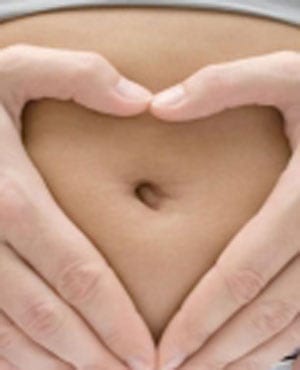Hugh Hayward – Traditional Chinese Medicine Practitioner
All of us can relate to the sensation of a gut feeling, the tightness in the abdomen or nausea that we experience while on a first date, walking up to that life changing job interview or casually hanging from a cliff.
Situations like this are perfectly manageable when sparked on the odd occasion however, the reality is that we commonly deal with these sensations on a perpetual basis just enduring life itself, the pressure of the work place, peak-hour traffic, our relationships and our responsibilities.
While most of us don’t experience full fledged panic attacks or vomiting episodes brought on by stress, a general feeling of unease is societally acceptable. In fact if you are not a little stressed out, people will usually think you are not working hard enough or perhaps that you are high on drugs!
The clinical significance of this in Chinese medicine lies in the gut-brain mechanism. The enteric nervous system consists of neuron sheaths fixed throughout walls of our gastrointestinal tract (GIT). Measuring out to roughly nine meters from esophagus to anus, the enteric gut-brain contains a network of over 100 million neurons – more than in the peripheral nervous system or spinal cord. In addition, our GIT contains almost every hormone and neurotransmitter that innovates the brain such as, Serotonin, GABA, Nor epinephrine and Dopamine and dozens more naturally occurring endogenous opioids and feel-good chemical mediators. For instance, serotonin is actually found in abundance in the GIT. Over 95% of your bodies ‘natural ecstasy hormone’ is produced in the GIT and derived from the amino acid – tryptophan, found in foods that we consume. This particular neurotransmitter is responsible for regulating our memory, mood, cognition, sleep and appetite, among other crucial functions in the body.
So with this in mind, it is no wonder that when we are upset, we feel it in our stomach. In essence, you are what you eat. That gut feeling is not in your head, it is the result of a barrage of biological reactions occurring in response to acute or long term anxiety or stress. This intimate connection works both ways and while your environment can trigger gut sensations, your emotions can be a product of the environment in your GIT.
The Chinese have known this for a millennia. The ancient taoist practice of Chi Nei Tsang is a form of Chinese abdominal massage that deals with detoxification of the gut in purging toxic matter and energy built up in the lymphatic system, pancreas, liver and intestines. Pent up emotional stress is often stored in the abdomen, just as we store memories in our cognitive brain, the gut-brain stores sensations that are reactive to traumatic incidences and lifestyles.
Flash-backs or recurring incidences of Post Traumatic Stress disorder, shock, addiction or abusive relationships, as well as many mood imbalances which are not usually deemed to be of clinical significance, manifest as a predisposition to specific sensational reactions that begin in the gut and are then perceived by our cognitive minds. Akin to muscle memory, like the automated motion of catching a ball, the mind can also induce these reactions, as if we hold the posture of anxiety or aggression or addictive behavior before it even manifests.
Just as a physiotherapist rehabilitates injured limbs, using Chi Nei Tsang abdominal massage, breathing exercises, acupuncture and dietary advice, we are able to rehabilitate the mind. This is very important for anyone with any mood disturbance such as anxiety, depression, nervousness, fearfulness or agitation as well as those with digestive complaints that can often be exacerbated by emotional triggers.
To make an appointment with Hugh to help with digestive and mood problems, call Brisbane Natural Health on 07 3367 0337 or click here.



